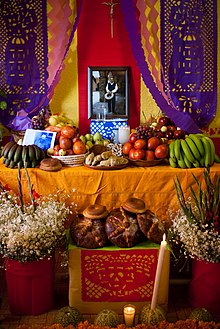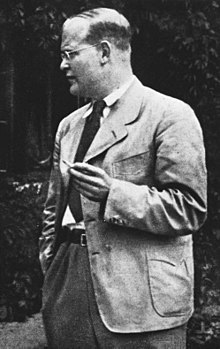Portal:Religion
The Religion Portal
Religion is a range of social-cultural systems, including designated behaviors and practices, morals, beliefs, worldviews, texts, sanctified places, prophecies, ethics, or organizations, that generally relate humanity to supernatural, transcendental, and spiritual elements—although there is no scholarly consensus over what precisely constitutes a religion. Different religions may or may not contain various elements ranging from the divine, sacredness, faith, and a supernatural being or beings. (Full article...)
 Vital article
Vital article

The Eastern Orthodox Church, officially the Orthodox Catholic Church, and also called the Greek Orthodox Church or simply the Orthodox Church, is the second-largest Christian church, with approximately 230 million baptised members. It operates as a communion of autocephalous churches, each governed by its bishops via local synods. The church has no central doctrinal or governmental authority analogous to the pope of the Catholic Church. Nevertheless, the Ecumenical Patriarch of Constantinople is recognised by them as primus inter pares ("first among equals"), a title formerly given to the patriarch of Rome. As one of the oldest surviving religious institutions in the world, the Eastern Orthodox Church has played an especially prominent role in the history and culture of Eastern and Southeastern Europe. (Full article...)
 Did you know (auto-generated)
Did you know (auto-generated)
- ... that Catherine de Parthenay, a 16th-century Huguenot leader, was a member of "a highly successful network of information" during the French Wars of Religion?
- ... that Musa va 'Uj depicts figures from all three Abrahamic religions?
- ... that Freedom of Religion South Africa filed an unsuccessful lawsuit to keep child spanking legal?
- ... that Gherardo Gambelli, the incoming archbishop of Florence, served as a prison chaplain in Chad for over a decade?
- ... that religious studies scholar C. Jouco Bleeker believed that religions are like acorns?
- ... that fictional religions, often described in speculative fiction, have in some cases inspired real religious movements?
Martin Bucer (/ˈbuːsər/; Early German: Martin Butzer; 11 November 1491 – 28 February 1551) was a German Protestant reformer based in Strasbourg who influenced Lutheran, Calvinist, and Anglican doctrines and practices. Bucer was originally a member of the Dominican Order, but after meeting and being influenced by Martin Luther in 1518 he arranged for his monastic vows to be annulled. He then began to work for the Reformation, with the support of Franz von Sickingen. (Full article...)



































































